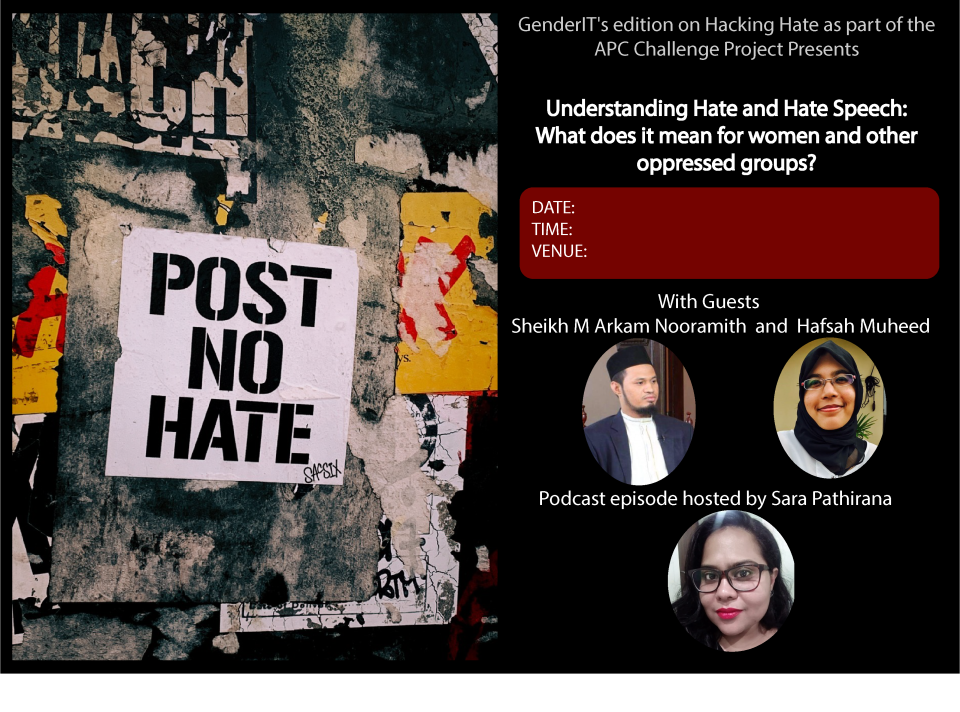
This podcast episode sheds light on the topic ‘Understanding Hate and Hate Speech: What does it mean for women and other oppressed groups?’. The initiative is part of GenderIT's edition on Hacking Hate as part of the APC Challenge Project. The podcast is moderated by journalist and researcher, Sara Pathirana from Sri Lanka and the episode focuses on the aspects of hate speech and its effects on minority groups and women in Sri Lanka. Sharing their views and strategies in light of this topic, are two guests; Sheikh Arkam Nooramith, a Sri Lankan Islamic Scholar who comes with an extensive background in traditional Islamic Studies as well as community work and Ms. Hafsah Muheed, who comes with an equally extensive background in social sustainability and engages in aspects of gender equality such as women in leadership, Gender-Based Violence and Women’s Health among others.
Their insight provides a glimpse of what it means to be a part of a community that is usually susceptible to being at the receiving end of hate speech in Sri Lanka, which is usually perpetrated by the majority Sinhala Buddhists. Even though the philosophy of Buddhism focuses on the attributes of good qualities such as kindness and equality, this unfortunately does not seem to reflect through the actions of those who engage in hate speech, where most of this is also spread via social media platforms in Sri Lanka. Issues of this kind were most common during major incidents and escalated whenever a hostile event would arise between Sinhala Buddhist and Muslim parties, and most often, were bound to be blown out of proportion from trivial incidents, which later spawned the anti-Muslim riots in 2018 in the town of Digana, Kandy.
Even though things eventually died down wherein the government had taken action to the point of banning some social media platforms in the hopes of curbing the spread of hate speech and possible calls for gatherings and rioting, tensions still persist and sadly, what followed in 2019 with the Easter Sunday Attacks by radicalised Muslims who were inspired by the ISIS movement, only further exacerbated racial tensions . In all of these situations, one important element stood out - the message of peace and love that eventually helped bring a sense of limited calm from prominent religious figures for instance, there is a lot of work that bodies such as NGOs and non-profit organisations do in terms of promoting peace and reconciliation through tools and mediums such as mobile journalism and work to strengthening social cohesion and promote solidarity. This is the kind of work that individuals such as this episode’s guests work on and are passionate about.
You can also listen to the podcast here
- 2146 views






Add new comment